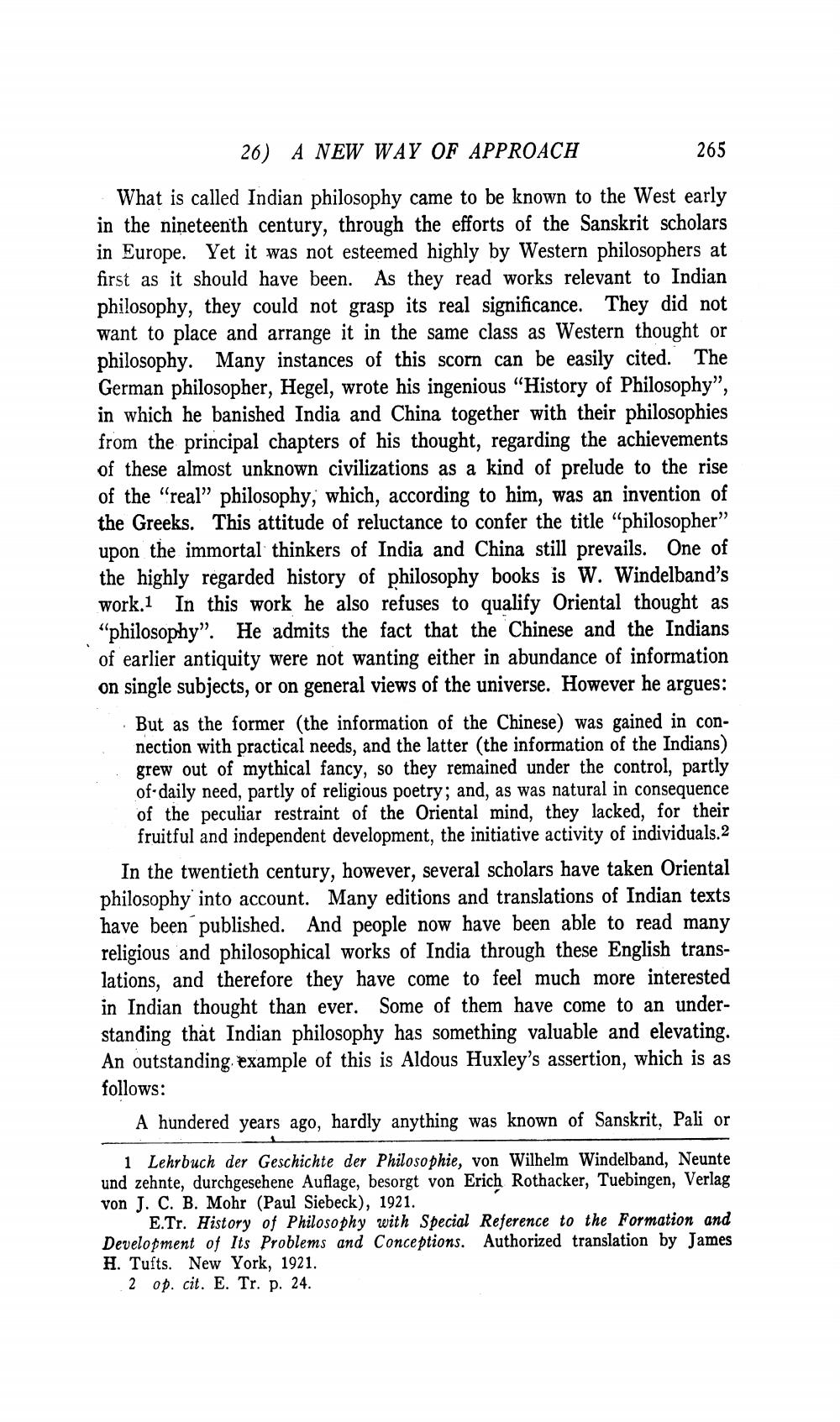Book Title: New Way Of Approach In Buddhist Studies Author(s): Hajime Nakamura Publisher: Hajime Nakamura View full book textPage 3
________________ 26) A NEW WAY OF APPROACH 265 What is called Indian philosophy came to be known to the West early in the nineteenth century, through the efforts of the Sanskrit scholars in Europe. Yet it was not esteemed highly by Western philosophers at first as it should have been. As they read works relevant to Indian philosophy, they could not grasp its real significance. They did not want to place and arrange it in the same class as Western thought or philosophy. Many instances of this scorn can be easily cited. The German philosopher, Hegel, wrote his ingenious "History of Philosophy", in which he banished India and China together with their philosophies from the principal chapters of his thought, regarding the achievements of these almost unknown civilizations as a kind of prelude to the rise of the "real" philosophy, which, according to him, was an invention of the Greeks. This attitude of reluctance to confer the title “philosopher” upon the immortal thinkers of India and China still prevails. One of the highly regarded history of philosophy books is W. Windelband's work.1 In this work he also refuses to qualify Oriental thought as "philosophy". He admits the fact that the Chinese and the Indians of earlier antiquity were not wanting either in abundance of information on single subjects, or on general views of the universe. However he argues: But as the former (the information of the Chinese) was gained in connection with practical needs, and the latter (the information of the Indians) grew out of mythical fancy, so they remained under the control, partly of daily need, partly of religious poetry; and, as was natural in consequence of the peculiar restraint of the Oriental mind, they lacked, for their fruitful and independent development, the initiative activity of individuals.2 In the twentieth century, however, several scholars have taken Oriental philosophy into account. Many editions and translations of Indian texts have been published. And people now have been able to read many religious and philosophical works of India through these English translations, and therefore they have come to feel much more interested in Indian thought than ever. Some of them have come to an understanding that Indian philosophy has something valuable and elevating. An outstanding, example of this is Aldous Huxley's assertion, which is as follows: A hundered years ago, hardly anything was known of Sanskrit, Pali or 1 Lehrbuch der Geschichte der Philosophie, von Wilhelm Windelband, Neunte und zehnte, durchgesehene Auflage, besorgt von Erich Rothacker, Tuebingen, Verlag von J. C. B. Mohr (Paul Siebeck), 1921. E.Tr. History of Philosophy with Special Reference to the Formation and Development of Its Problems and Conceptions. Authorized translation by James H. Tufts. New York, 1921. 2 op. cit. E. Tr. p. 24.Page Navigation
1 2 3 4 5 6 7 8 9 10 11 12 13 14 15 16 17 18 19 20 21
